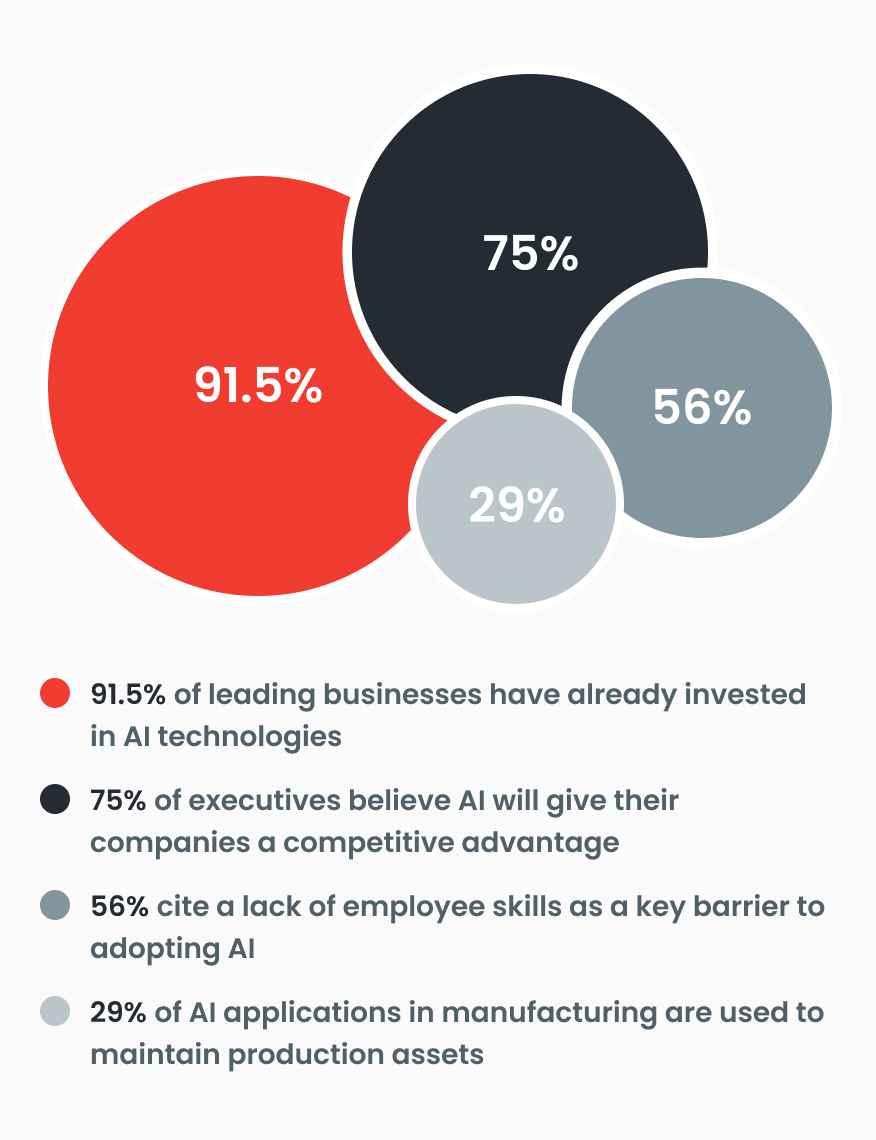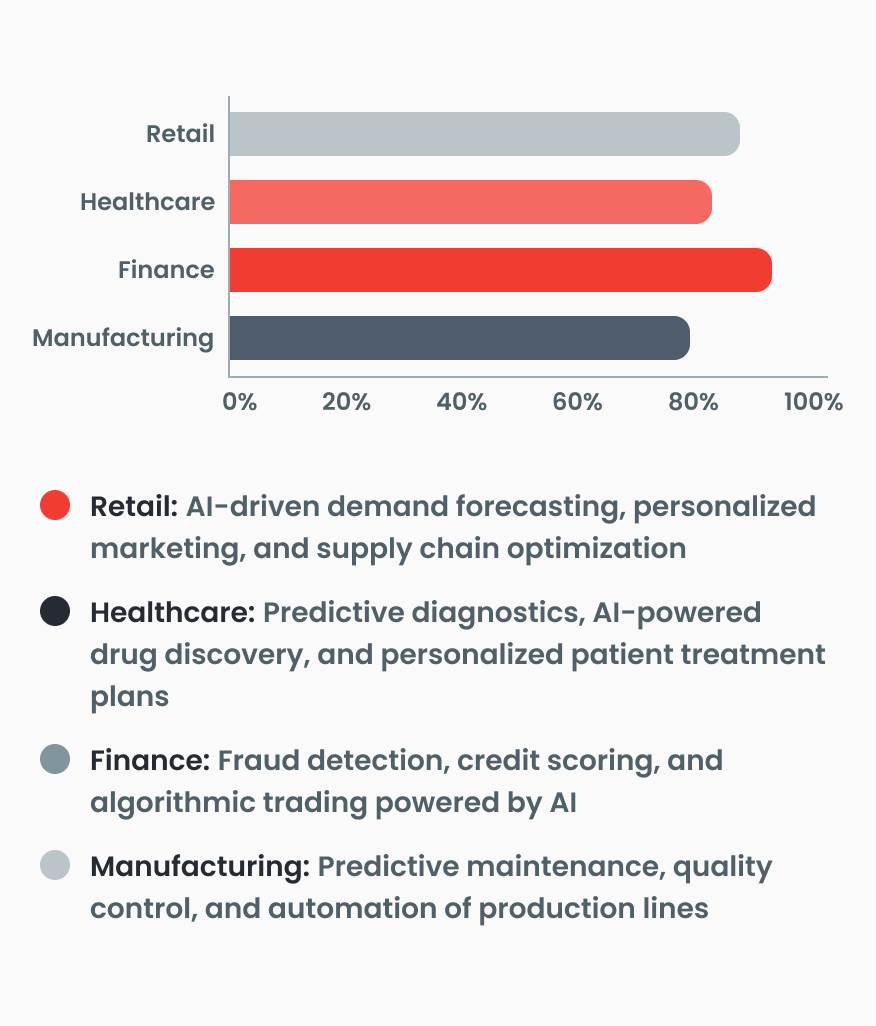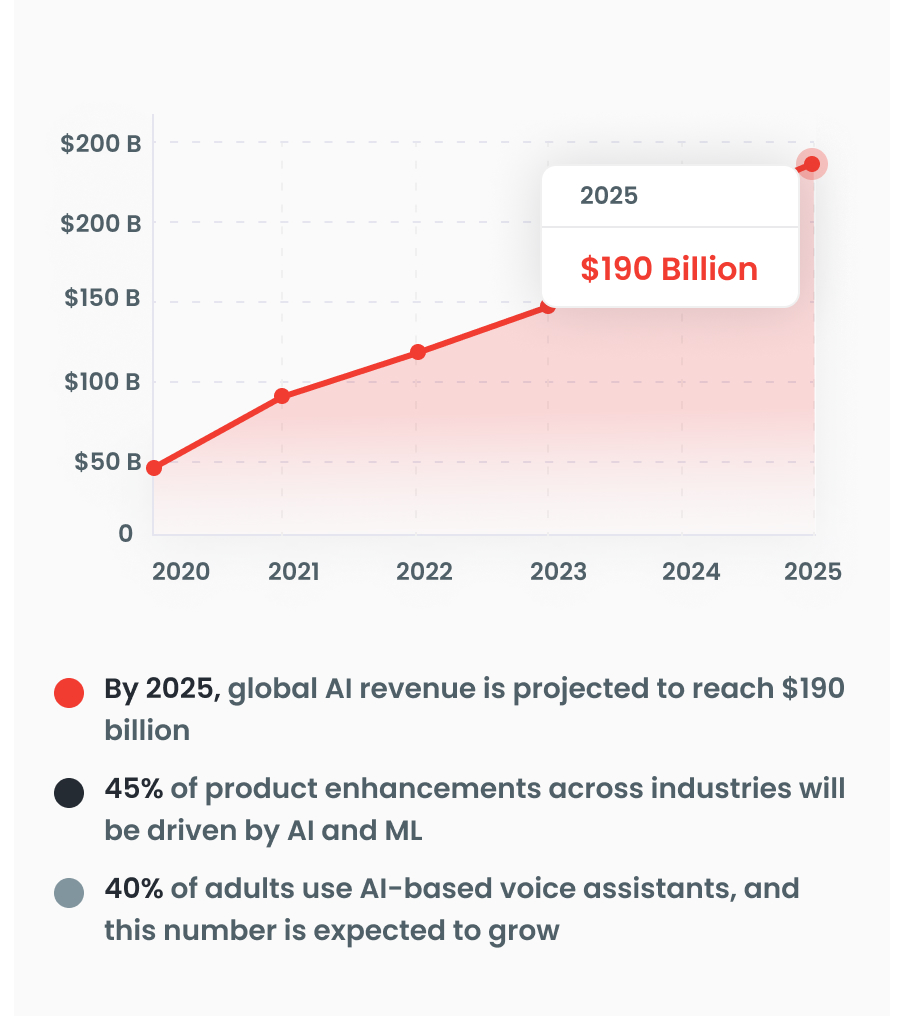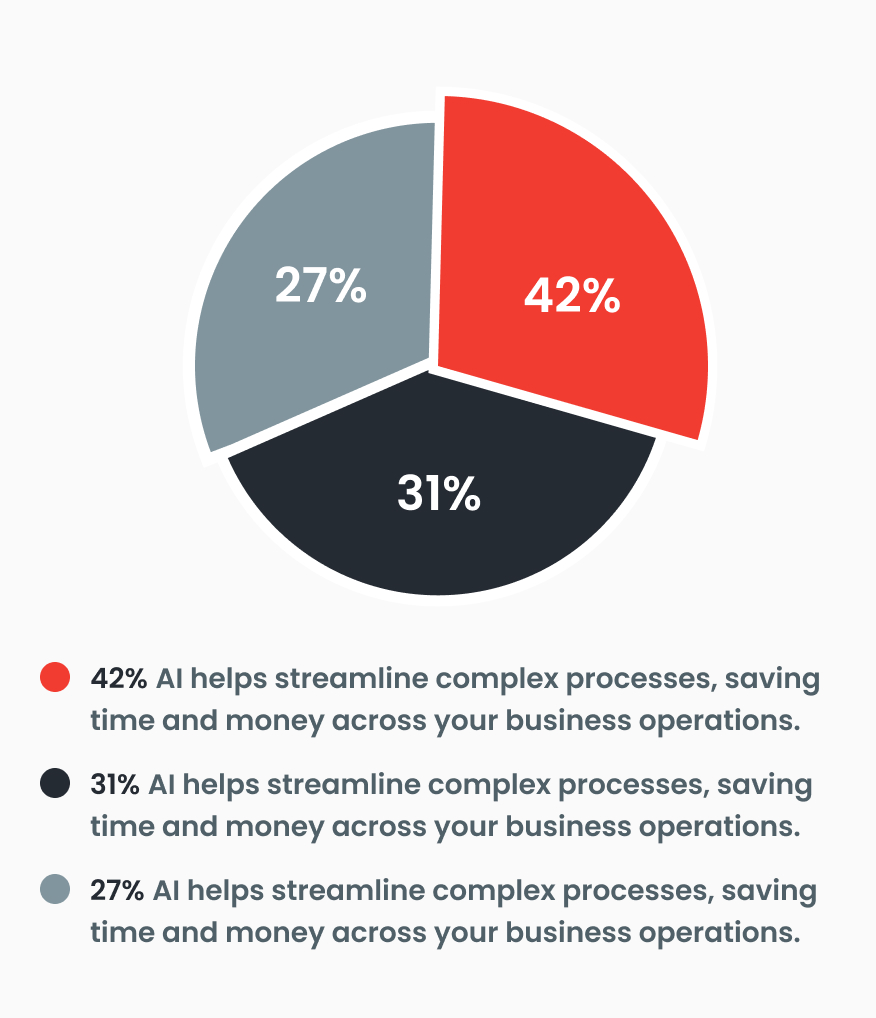Shaping the Future of Business Innovation
Leverage cutting-edge AI/ML technologies to drive operational efficiency, unlock growth opportunities, and create personalized customer experiences.

Artificial Intelligence (AI) and Machine Learning (ML) are revolutionizing how businesses operate by allowing them to automate tasks, analyze vast amounts of data, and create tailored solutions for customers. With advancements in deep learning and AI algorithms, organizations across various industries are finding new ways to remain competitive in a data-driven world.
AI involves creating systems that can perform tasks that typically require human intelligence, such as decision-making, language processing, and visual perception. ML, a subset of AI, allows systems to learn and improve from data without being explicitly programmed, helping businesses analyze data faster and more accurately.
AI and ML are no longer futuristic concepts – they are fundamental to driving business success in the modern world. Here’s why every business should consider adopting AI and ML solutions:
AI involves creating systems that can perform tasks that typically require human intelligence, such as decision-making, language processing, and visual perception. ML, a subset of AI, allows systems to learn and improve from data without being explicitly programmed, helping businesses analyze data faster and more accurately.

AI-powered automation helps businesses streamline repetitive tasks, reduce operational costs, and improve productivity. From automating workflows to optimizing supply chains, AI solutions can free up valuable resources for strategic initiatives.
Machine Learning models process and analyze massive datasets in real-time, providing insights that enable businesses to make better decisions. Predictive analytics helps anticipate market trends, customer behavior, and potential risks, leading to smarter strategies and actions.
AI’s ability to analyze customer preferences and behavior allows businesses to deliver highly personalized experiences. From personalized product recommendations to targeted marketing, AI helps enhance customer satisfaction and loyalty.
Early AI/ML adopters have consistently outperformed their competitors by innovating faster, optimizing operations, and building smarter products. Leveraging AI ensures that businesses stay ahead in a rapidly evolving landscape.

AI and ML are revolutionizing industries, empowering businesses to leverage advanced technologies for smarter decision-making, operational efficiency, and innovative solutions to complex challenges. By analyzing vast amounts of data, identifying patterns, and making predictions, AI and ML enable companies to automate processes, enhance customer experiences, and unlock new opportunities.
From automating repetitive tasks to generating insights that drive business growth, AI and ML offer a competitive edge that is transforming the way industries operate.
AI-powered predictive models help businesses forecast future trends, customer behavior, and operational outcomes. These models use historical data to predict demand, optimize pricing, and anticipate supply chain disruptions, improving decision-making across the board.
Deep Learning, a subset of ML, is used to build neural networks that mimic the human brain’s ability to learn and process information. This technology powers innovations in speech recognition, autonomous vehicles, and image classification.
Adopting AI and ML solutions gives businesses a competitive edge by helping them harness the power of their data, improve decision-making, and drive innovation. Here’s how AI and ML can transform your business:

From supply chain management to human resources, AI can optimize complex business processes, leading to significant time and cost savings.
With AI-driven insights and data analytics, businesses can speed up product development cycles, discover new market opportunities, and create cutting-edge solutions that meet the evolving needs of their customers.
AI/ML models allow businesses to scale their operations with data-driven insights, ensuring they meet growing demand while maintaining operational efficiency.